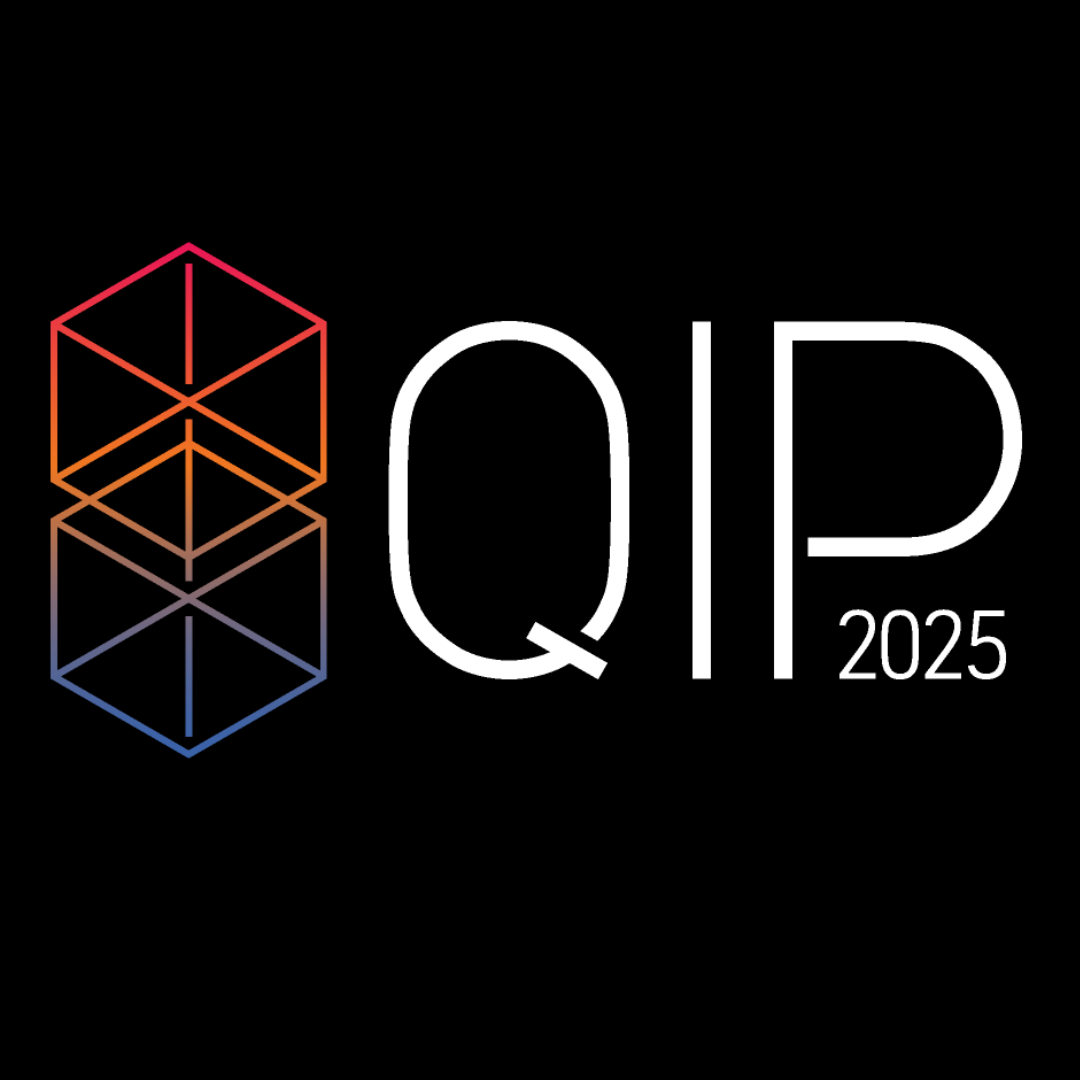
Research and scholarship by fellows, postdoctoral scholars, graduate students and alumni from the Joint Center for Quantum Information and Computer Science (QuICS) is once again being featured at the Quantum Information Processing Conference (QIP 2025), widely recognized as the premier annual meeting for theoretical quantum information research.
Held this year from Feb. 24–28 in Raleigh, North Carolina, the conference draws participants from around the world, highlighting the preceding year’s best research in quantum computation and information in the form of both invited and contributed talks. The selection of these talks is highly competitive.
QuICS-affiliated researchers are involved in more than a dozen of the talks, with a QuICS faculty member presenting a workshop tutorial that precedes the main conference.
“The variety of research that QuICS members are presenting this year is astonishing. It reflects the intense interest in quantum information science, and the role that theory plays in informing our vision for the future of this field,” says Yi-Kai Liu, a co-director of QuICS.
In one of the accepted talks, QuICS doctoral students Joseph Iosue, Connor Mooney, recent QuICS Lanczos Graduate Fellow Adam Ehrenberg, and QuICS fellow Alexey Gorshkov will present their work on projective toric designs, quantum state designs, and mutually unbiased bases. Their research formalizes the notion of projective toric designs—both finite- and infinite-dimensional—and provides various constructions thereof, while also illustrating the connection to quantum state designs and other mathematical objects.
Another talk, which includes input by QuICS doctoral student Chaitanya Karamchedu and his adviser, QuICS co-director Daniel Gottesman, highlights “A Criterion for Quantum Advantage.” The researchers have established an algebraic criterion for testing if a quantum computer over a non-universal gate set can efficiently perform a sampling task that no classical computer can, assuming standard complexity assumptions.
QuICS doctoral student Kelsey Jackson, QuICS fellow Carl Miller and Daochen Wang, who was a doctoral student in QuICS from 2019–2023, will present their work on “Evaluating the security of CRYSTALS-Dilithium in the quantum random oracle model.” Their goal was to provide rigorous assurance of the security of CRYSTALS-Dilithium, selected by the National Institute of Standards and Technology as the primary digital signature scheme for resisting attacks by quantum adversaries.
In their talk titled “Entanglement accelerates quantum simulation,” Qi Zhao, a former QuICS Hartree Postdoctoral Fellow, and QuICS fellow Andrew Childs investigate the relationship between quantum entanglement and quantum simulation, showing that product-formula approximations can perform better for entangled systems. By establishing a tighter upper bound for algorithmic error in terms of entanglement entropy and developing an adaptive simulation algorithm incorporating measurement gadgets to estimate the algorithmic error, this work shows that entanglement is not only an obstacle to classical simulation, but also a feature that can accelerate quantum algorithms.
Other accepted talks at QIP 2025 that involve QuICS-affiliated researchers are:
• “The state hidden subgroup problem and an efficient algorithm for locating unentanglement,” which was co-authored by Tudor Giurgica-Tiron, a Hartree Postdoctoral Fellow at QuICS. This presentation is a (short) plenary talk, which is highly selective.
• “Encoded quantum gates by geometric rotation on tessellations,” which was co-authored Yijia Xu, a doctoral student in QuICS.
• “Quantum Advantage from Gibbs Sampling at Finite Temperatures,” which was co-authored by Joel Rajakumar, a doctoral student in QUICS, and James Watson, a former postdoctoral scholar at QuICS.
• “Icosahedral Quantum Codes from Twisted Unitary t-groups,” presented by Eric Kubischta and Ian Teixeira, both graduate students in mathematics working in QuICS.
• “Exponentially Improved Product Formulae using Extrapolation,” which was co-authored by James Watson, a former postdoctoral scholar in QuICS.
• “Quantum advantage and lower bounds in parallel query complexity,” presented by Joseph Carolan, a current QuICS doctoral student and former Lanczos Graduate Fellow, and Amin Shiraz Gilani and Mahathi Vempati, both of whom are doctoral students in QuICS.
• “Positive bias makes tensor-network contraction tractable,” which was co-authored by Dominik Hangleiter, who worked on the project as a QuICS Hartree Postdoctoral Fellow.
• “A computational test of quantum contextuality, and even simpler proofs of quantumness,” which was co-authored by Atul Arora, who worked on the project as QuICS Hartree Postdoctoral Fellow, and by Kishor Bharti and Alexandru Cojocaru, former QuICS postdoctoral scholars.
• “Quantum Space-Time Trade-Offs for Sponge Inversion,” which was co-authored by Joseph Carolan, a doctoral student in QuICS.
• “Quantum algorithms for linear differential equations and eigenvalue transformations via linear combination of Hamiltonian simulation,” which was co-authored by Dong An, a former QuICS Hartree Postdoctoral Fellow, and QuICS fellow Andrew Childs.
“A quantum central path algorithm for linear optimization,” which was co-authored by Jiaqi Leng, a former doctoral student working in QuICS, and QuICS fellow Xiaodi Wu.
“On the Computational Complexity of Schrödinger Operators,” which was co-authored by Jiaqi Leng and Xiaodi Wu, as well as QuICS doctoral student Yufan Zheng.
***
Before the main conference starts, QuICS fellow Victor Albert is one of four invited speakers to present a tutorial. Albert will introduce and overview new frontiers in the field of quantum error correction as they relate to the talks at the conference.